Find Help
More Items From Ergsy search
-

Autism Assessment - What Happens in Your Appointment
Relevance: 100%
-

Is there an autism test?
Relevance: 54%
-
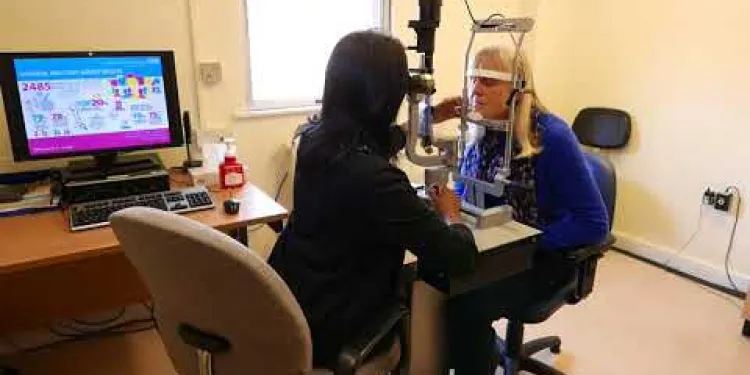
Derbyshire Diabetic Eye Screening - Assessment Clinic Appointment
Relevance: 53%
-

How is autism diagnosed?
Relevance: 51%
-

What is Autism?
Relevance: 50%
-

Can adults have autism?
Relevance: 48%
-

Is paracetamol linked to autism?
Relevance: 47%
-

Can autism be cured?
Relevance: 47%
-
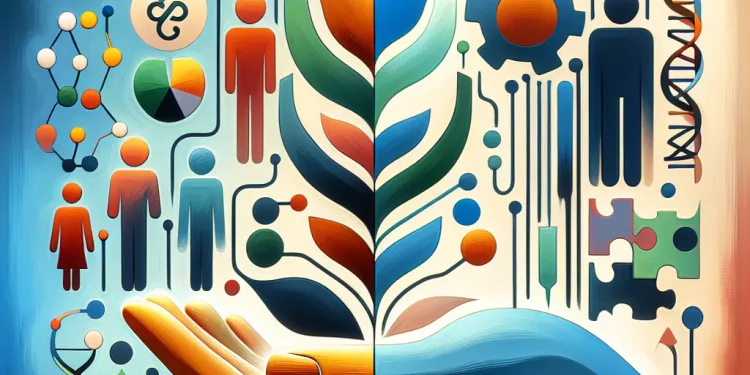
Is there a genetic component to autism?
Relevance: 46%
-

What is the autism spectrum?
Relevance: 46%
-

How prevalent is autism?
Relevance: 46%
-

What causes autism?
Relevance: 46%
-

Autism: Graeme's story | NHS
Relevance: 46%
-

What are the signs of autism?
Relevance: 45%
-

Are vaccines linked to autism?
Relevance: 45%
-

Autism - My Story - Rosalind | NHS
Relevance: 45%
-

Autism - My Story - Adrian | NHS
Relevance: 44%
-

Is autism more common in boys or girls?
Relevance: 44%
-

What can cause autism, if not paracetamol?
Relevance: 43%
-

What role do sensory issues play in autism?
Relevance: 42%
-

How does autism affect communication?
Relevance: 42%
-

What are some common therapies for autism?
Relevance: 42%
-

What is the difference between autism and Asperger's syndrome?
Relevance: 41%
-

What advice is available for parents concerned about autism risks?
Relevance: 41%
-

Can people with autism lead independent lives?
Relevance: 41%
-

How can early intervention help children with autism?
Relevance: 40%
-

Why is there concern about paracetamol and autism?
Relevance: 40%
-

The NHS Long Term Plan for learning disability and autism
Relevance: 40%
-

How can families support a member with autism?
Relevance: 39%
-

Is there any scientific evidence that links paracetamol use to autism?
Relevance: 39%
-

What kind of studies are conducted to investigate links between medications and autism?
Relevance: 39%
-

Is there any risk of using paracetamol outside of pregnancy with regard to autism?
Relevance: 38%
-

How is PIP assessed?
Relevance: 37%
-
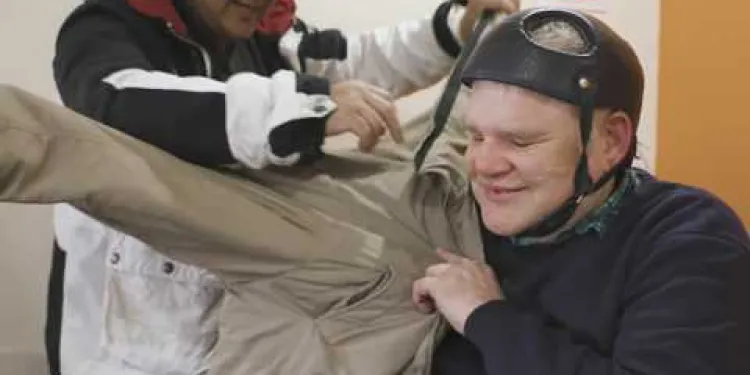
Transforming Care for people with Learning Disabilities and/ or Autism: Peter's Story
Relevance: 37%
-
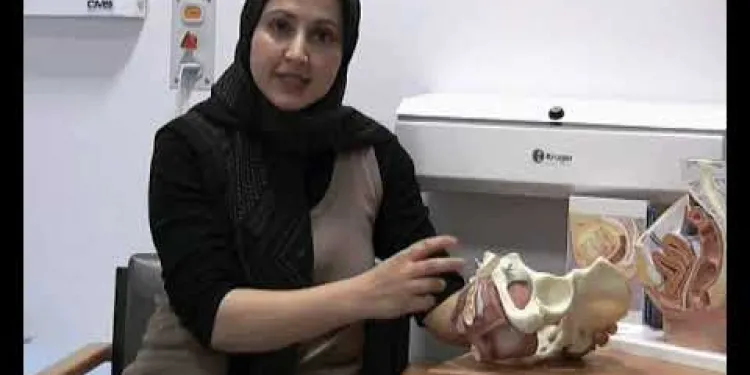
Physiotherapy Assessment of Urinary Incontinence
Relevance: 36%
-

How should I prepare for a Botox appointment?
Relevance: 35%
-
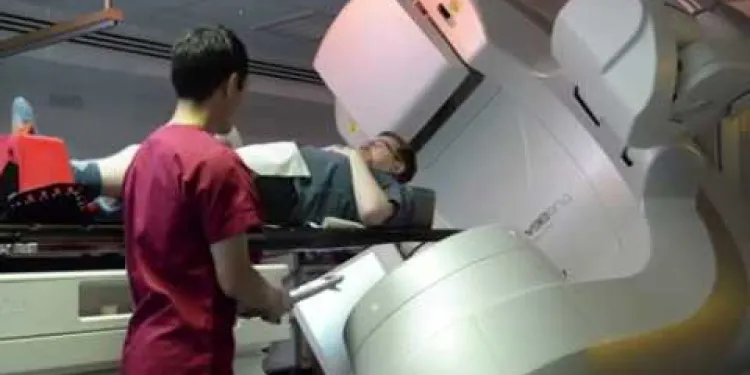
A Radiotherapy appointment in east and North Hertfordshire
Relevance: 35%
-

Can children get NHS dentist appointments?
Relevance: 35%
-

Assessing the stroke patient
Relevance: 34%
-

How do I book an appointment for the flu vaccine?
Relevance: 34%
Autism Assessment: What Happens in Your Appointment
In the United Kingdom, an autism assessment is a thorough evaluation aimed at understanding if an individual meets the criteria for Autism Spectrum Disorder (ASD). This guide provides an overview of what to expect during the appointment process.
Initial Consultation
The first step in an autism assessment involves an initial consultation, typically with a GP or a specialist. During this session, the healthcare professional will gather preliminary information about the individual's developmental history, current symptoms, and any concerns raised by family members or caregivers. This stage may also involve completing questionnaires and screening tools to identify potential signs of ASD.
Multidisciplinary Evaluation
An autism assessment usually involves a multidisciplinary team, including psychologists, psychiatrists, speech and language therapists, and occupational therapists. Each specialist brings their expertise to provide a comprehensive evaluation of the individual's condition. These professionals will conduct various tests and observations to gain a thorough understanding of social communication skills, behavioural patterns, and sensory sensitivities.
Developmental History and Interviews
As part of the assessment, the team will likely conduct interviews with parents, caregivers, or other close contacts to gather detailed information about early development, including any milestones and developmental concerns. These interviews help build a complete picture of the individual's communication, social interactions, and behavioural history.
Direct Observation
Direct observation is a crucial component of the autism assessment. The individual may be observed in structured and unstructured settings to evaluate their interaction with the environment and people around them. These observations help identify any repetitive behaviours, difficulty with changes in routine, or social communication challenges.
Diagnostic Criteria
Following the comprehensive evaluation, the multidisciplinary team will review the findings against established diagnostic criteria, such as the DSM-5 or the ICD-10. This step involves synthesising all collected information to determine whether the individual meets the criteria for an ASD diagnosis.
Feedback and Next Steps
Once the assessment is complete, a feedback session is arranged to discuss the findings with the individual and their family. During this meeting, the healthcare professionals will provide insights into the diagnosis, recommendations for interventions, and support services available. This feedback helps guide the development of personalised support plans tailored to the individual's needs.
Post-Diagnosis Support
A diagnosis of autism can open the door to various support services and interventions in the UK. These may include educational support, speech and language therapy, occupational therapy, and social skills training. The aim is to provide the individual with tools and strategies to navigate their daily life more effectively and improve their quality of life.
Understanding what happens during an autism assessment appointment can help reduce anxiety and ensure that individuals and their families are well-prepared for the process. Early diagnosis and intervention are essential in providing the necessary support for individuals with ASD to thrive.
Autism Assessment: What Happens in Your Appointment
In the UK, an autism assessment checks if a person has Autism Spectrum Disorder (ASD). This helps people understand what to expect during the appointment.
First Meeting
The first step is a meeting, usually with a doctor or specialist. They will ask questions about how the person grew up, any worries, and what symptoms they have now. Sometimes, they will ask you to fill out forms to see if there are signs of ASD.
Team Evaluation
A group of experts work together to check for autism. They include psychologists, speech therapists, and more. Each expert helps to see how the person talks, behaves, and handles different situations. They might do some tests and watch how the person behaves.
Family Interviews
The team talks to parents or caregivers. They ask about the person's early life, like how they grew up and learned to talk and play. These talks help them understand the person better.
Watching Behavior
Experts will watch the person in different settings. They look at how the person talks to others and deals with new things. They check for patterns like repeating actions or having trouble with changes.
What We Use to Decide
The team uses a list of rules, like DSM-5 or ICD-10, to decide if the person has autism. They look at everything they learned from the tests, talks, and watching to make this decision.
Results and What’s Next
After the assessment, there is a meeting to share the results with the person and their family. The experts explain what they found and suggest what to do next. They talk about services and plans to help the person.
Help After Diagnosis
If a person has autism, they can access support in the UK. This might include help at school, speech therapy, or social skills training. These tools help make daily life easier and better.
Knowing what happens during the assessment helps people feel ready and less worried. Early diagnosis and help are important for people with ASD to succeed.
Frequently Asked Questions
What should I expect during an autism assessment appointment?
During an autism assessment appointment, expect a combination of interviews, questionnaires, and observational assessments conducted by a team of healthcare professionals.
Who will be involved in the autism assessment?
Typically, a multidisciplinary team including a clinical psychologist, psychiatrist, speech and language therapist, and possibly an occupational therapist will be involved in the assessment.
How long does an autism assessment take?
An autism assessment can take several hours and might be spread over multiple sessions. This allows a thorough evaluation of different aspects of behaviour and development.
Will I need to bring any documents to the appointment?
Yes, you may need to bring previous medical records, school reports, and any relevant documentation that can provide insight into the individual's developmental history and behaviour.
What types of questions will be asked during the assessment?
Questions will cover developmental milestones, social interactions, communication skills, repetitive behaviours, and sensory sensitivities among other areas.
Is there a physical examination during the autism assessment?
A physical examination might be performed to rule out other medical conditions that could affect behaviour or development, but it is not the primary focus of the assessment.
Can parents or caregivers be present during the assessment?
Yes, parents or caregivers are usually encouraged to be present during the assessment to provide information and support.
What observational assessments might be conducted?
Observational assessments often include tasks that assess social interaction, communication skills, play behaviour, and other relevant abilities.
Will there be any follow-up after the initial assessment?
There may be follow-up appointments to discuss the findings and recommendations for interventions, support, or further evaluations.
How soon will I receive the results of the autism assessment?
Receiving the full results might take a few weeks as the team reviews all information and observations collected during the assessment.
What should I do to prepare for the assessment?
Ensure you have all necessary documentation, discuss any concerns with family members or caregivers, and consider keeping a diary of behavioural observations to share with the healthcare team.
Can I request an autism assessment through the NHS?
Yes, you can request an autism assessment through the NHS by first speaking with your GP, who can refer you to the appropriate specialists.
Is there a cost associated with an autism assessment on the NHS?
No, autism assessments provided through the NHS are free of charge. Private assessments, however, will incur a cost.
What happens if the assessment confirms a diagnosis of autism?
If a diagnosis of autism is confirmed, the team will provide recommendations for interventions, support services, educational adjustments, and possibly therapeutic services.
Will the results of the assessment be confidential?
Yes, the results and all information shared during the assessment will be kept confidential and will only be shared with relevant professionals involved in care, with your consent.
What happens at an autism check-up?
When you go for an autism check-up, here is what you can expect:
- You might meet more than one doctor or specialist.
- They will ask you and your family many questions about how you feel and act.
- You might play some games or do tasks to see how you think and talk.
If you feel nervous, tell someone. It is okay to ask for breaks or to take your time. You can bring a favorite toy or item if it helps you stay calm.
When you go to an appointment to check for autism, here is what can happen. You will have talks with doctors, fill out forms with questions, and they will watch how you act. A group of health helpers will do all this.
Who helps check for autism?
Usually, a group of different helpers will be part of the check-up. This group can have a feelings doctor, a mind doctor, a talking and listening helper, and maybe someone who helps with everyday tasks.
How long does it take to check for autism?
Checking for autism can take a long time. It might take a few weeks or even months.
Remember, it's important to be patient. Everyone is different, and the doctors want to get it right.
If you feel worried, tell someone you trust.
You can use tools like calendars to keep track of time or write down questions you want to ask the doctor.
Checking if someone has autism can take a few hours. It might be done over a few days. This helps look at how a person acts and grows carefully.
Do I need to bring papers when I come?
Yes, you might need to bring old medical papers, school reports, and other important papers. These can help show how the person has grown and acted over time.
What questions will they ask in the test?
They will ask different questions to see what you know and can do. You might have to answer questions where you pick from choices, write a bit about something, or solve problems. Don’t worry! You can ask for help if you need it. Using tools like pictures or charts can make it easier to understand. Practice with someone you trust before the test to feel more ready.
The questions will ask about how you grow and learn. They will ask about making friends, talking and listening, doing the same thing over and over, and liking or not liking some sounds, lights, or touches.
Will a doctor look at my body during the autism check-up?
The doctor might do a check-up to make sure there are no other health problems that could change how someone acts or grows. But this check-up is not the main part of looking at behavior or development.
Can parents or caregivers be there during the test?
Yes, parents or caregivers can stay with you during the test. Having someone you know can help you feel calm and safe. If you have any questions, you can ask them. They are there to help and support you. If you like, you can bring something comforting, like a favorite toy or a blanket.
Yes, parents or caregivers should usually be there during the test to help and give information.
What checks will be done by watching?
Watching someone can help us understand how they act around others. We look at how they talk, play, and do other important things.
Will there be more check-ins after the first meeting?
Yes, there will be more check-ins after the first meeting. We will keep talking to see how you are doing. This helps us help you better.
Here are some ways that can support you:
- Writing notes of what is said in meetings.
- Asking questions if you don’t understand.
- Having someone with you to help listen.
You might have more meetings to talk about what was found out. They will also tell you what help you can get or if you need more tests.
When will I get my autism test results?
You will get your autism test results in a few weeks. It might take up to a month. Here is what you can do while you wait:
- Ask the person who did your test when you will get the results.
- Make a note in your calendar to remember when you should get the results.
- Talk to someone you trust if you feel worried while waiting.
Remember, it's okay to ask questions if you are not sure about something.
It might take a few weeks to get all the results. The team needs time to look at all the information and notes they collected during the check-up.
How can I get ready for the test?
Here are some ways to help you get ready for the test:
- Ask someone to help you study.
- Look at any notes or papers you have.
- Practice with questions like the ones on the test.
- Talk to someone if you have questions or need help.
- Take deep breaths and stay calm.
Remember, it's okay to ask for help. You can do it!
Make sure you have all the papers you need. Talk about any worries with your family or carers. You can also keep a diary to write down things you notice. This can help the doctors and nurses.
Can I ask for an autism check-up from the NHS?
Yes, you can ask for an autism check-up from the NHS. If you think you might have autism, talk to your doctor. Your doctor can help you get a check-up.
Here are some steps you can follow:
- Tell your doctor about your worries.
- Write down any problems you have. This will help your doctor understand you better.
- You can bring someone with you to your appointment. They can help you explain your feelings.
These steps can help make the process easier for you.
Yes, you can ask for an autism check-up through the NHS. First, talk to your doctor (GP). They can send you to the right people who can help.
It's good to write down your questions before you see your GP. You can also bring someone with you, like a friend or family member, for support.
Do you need to pay for an autism test on the NHS?
This question asks if you have to pay money to get an autism test on the NHS. The NHS is a health service in the UK.
Here is a simple answer: No, you do not have to pay. Autism tests on the NHS are free. This means you do not need to give any money to get the test.
If you want help to understand this, you can:
- Ask a friend or family member to help you read the information.
- Use a talking tool that reads the words out loud to you.
NHS autism checks are free. But if you go private, it will cost money.
What Happens After an Autism Test?
If the test shows someone has autism, what comes next?
The doctor will talk to you about the results. They will explain what "autism" means.
You can ask questions to understand better. The doctor or another helper can give you tips and tools.
They might suggest ways to help, like special classes or support groups.
Remember, everyone is different, and help is there for you.
If doctors say someone has autism, they will give advice on what to do next. They might suggest special help, changes at school, or therapy sessions.
Will the results be private?
Yes, your test results will be private. Only people who need to see them will look at them. You can ask someone you trust to explain it to you, like a teacher or family member. Using simple words or pictures can help you understand better.
Yes, we will keep your results and information private. We will only share them with people who help take care of you, but only if you say it's okay.
Useful Links
- Ergsy carfully checks the information in the videos we provide here.
- Videos shown by Youtube after a video has completed, have NOT been reviewed by ERGSY.
- To view, click the arrow in centre of video.
- Most of the videos you find here will have subtitles and/or closed captions available.
- You may need to turn these on, and choose your preferred language.
- Go to the video you'd like to watch.
- If closed captions (CC) are available, settings will be visible on the bottom right of the video player.
- To turn on Captions, click settings .
- To turn off Captions, click settings again.
More Items From Ergsy search
-

Autism Assessment - What Happens in Your Appointment
Relevance: 100%
-

Is there an autism test?
Relevance: 54%
-

Derbyshire Diabetic Eye Screening - Assessment Clinic Appointment
Relevance: 53%
-

How is autism diagnosed?
Relevance: 51%
-

What is Autism?
Relevance: 50%
-

Can adults have autism?
Relevance: 48%
-

Is paracetamol linked to autism?
Relevance: 47%
-

Can autism be cured?
Relevance: 47%
-

Is there a genetic component to autism?
Relevance: 46%
-

What is the autism spectrum?
Relevance: 46%
-

How prevalent is autism?
Relevance: 46%
-

What causes autism?
Relevance: 46%
-

Autism: Graeme's story | NHS
Relevance: 46%
-

What are the signs of autism?
Relevance: 45%
-

Are vaccines linked to autism?
Relevance: 45%
-

Autism - My Story - Rosalind | NHS
Relevance: 45%
-

Autism - My Story - Adrian | NHS
Relevance: 44%
-

Is autism more common in boys or girls?
Relevance: 44%
-

What can cause autism, if not paracetamol?
Relevance: 43%
-

What role do sensory issues play in autism?
Relevance: 42%
-

How does autism affect communication?
Relevance: 42%
-

What are some common therapies for autism?
Relevance: 42%
-

What is the difference between autism and Asperger's syndrome?
Relevance: 41%
-

What advice is available for parents concerned about autism risks?
Relevance: 41%
-

Can people with autism lead independent lives?
Relevance: 41%
-

How can early intervention help children with autism?
Relevance: 40%
-

Why is there concern about paracetamol and autism?
Relevance: 40%
-

The NHS Long Term Plan for learning disability and autism
Relevance: 40%
-

How can families support a member with autism?
Relevance: 39%
-

Is there any scientific evidence that links paracetamol use to autism?
Relevance: 39%
-

What kind of studies are conducted to investigate links between medications and autism?
Relevance: 39%
-

Is there any risk of using paracetamol outside of pregnancy with regard to autism?
Relevance: 38%
-

How is PIP assessed?
Relevance: 37%
-

Transforming Care for people with Learning Disabilities and/ or Autism: Peter's Story
Relevance: 37%
-

Physiotherapy Assessment of Urinary Incontinence
Relevance: 36%
-

How should I prepare for a Botox appointment?
Relevance: 35%
-

A Radiotherapy appointment in east and North Hertfordshire
Relevance: 35%
-

Can children get NHS dentist appointments?
Relevance: 35%
-

Assessing the stroke patient
Relevance: 34%
-

How do I book an appointment for the flu vaccine?
Relevance: 34%


